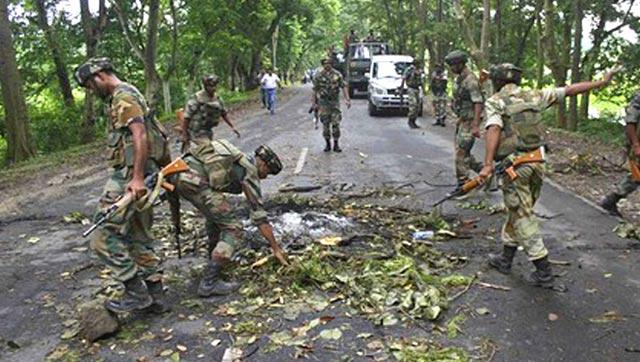Nagaland govt’s silence over Assam Rifles notice is unacceptable
The Nagaland government’s failure to react to the circular sent by Assam Rifles to media houses is unacceptable.
On October 25, five newspaper editors in Nagaland received a ‘notification’ from Colonel Rajesh Gupta, Colonel General Staff for inspector general of Assam Rifles. The communication headlined ‘Media Support to Unlawful Association’ was terse: It asked the editors to desist from covering the National Socialist Council of Nagaland-Khaplang (NSCN-K), which has been declared a terror organisation by the Centre on September 28. “It is reiterated that any article which projects the demands of NSCN[K] and gives it publicity is a violation under the Unlawful Activities (Prevention) Act 1967, and should not be published by your newspaper,” the communication added.

On November 16, the National Press Day, three newspapers — Morung Express, the Eastern Mirror and the Nagaland Page — retaliated in the strongest possible way: In an unprecedented move, they carried blank editorials, sending a signal that the media will not take any side in the conflict but rely only on facts. Two editors were not in favour of carrying blank editorials.
Why did the editors take a month to react, I asked Monalisa Changkija, editor of Nagaland Page. “I spoke to Colonel Gupta and offered to sit for a dialogue… he was open to the offer but never got back. So we decided to issue a public statement and carry blank editorials,” Changkija, the only woman proprietor, publisher and editor of a daily English newspaper, in the Northeast of India, told me. The Editors Guild of India also voiced concern over the order, saying it could “severely curtail freedom of Nagaland-based media houses” .
Reporting in conflict-hit areas is like negotiating a minefield every single day and both sides involved in the conflict often accuse journalists of taking the sides of their opponents. But the role of the media, as the Naga editors said, is about providing a platform for all shades of opinion: “When we have reported news by, or from, banned organisations, we have done so in the spirit of transparency, inclusivity, and fairness so that the surfacing divergent opinions can promote dialogue and constructive engagement among diverse groups in Nagaland”.
Their comment reminded me of a lecture by Richard Francis, former Controller, Northern Ireland, on ‘Broadcasting to a community in conflict, experience in Northern Ireland’ in which he talks about BBC’s role during The Troubles.
“I believe we have a contribution to make to the maintenance of democracy, both by providing a forum where harsh differences of opinion can be aired and by reporting and courageously investigating the unpalatable truths which underlie the problems in our midst. I am sure that if and when the communities of Northern Ireland reconcile their conflicts it will be by understanding them rather than by ignoring them, and I would like to think that amongst those who will have contributed most to that understanding, the broadcasters, and the BBC in particular, will have played their part”.
If the Assam Rifles has reacted in a high-handed manner, the stance of the state government has been appalling. Till the time of going to press, the Nagaland government has not spoken a word on the issue. This silence doesn’t say much about the state government’s democratic credentials, does it, says Changkija combatively. It surely doesn’t.
Read More:
Nagaland newspapers published with blank editorial space
National Socialist Council of Nagaland-Khaplang declared a terror outfit





